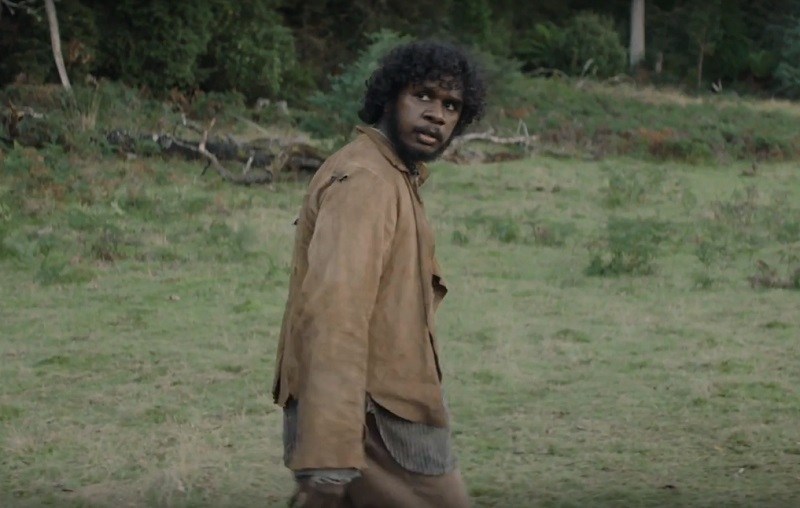A lot has been made of the emotionally harrowing scenes that punctuate Jennifer Kent’s new film The Nightingale. Graphic depictions of rape and violence have divided viewers. The film has prompted many audience members to walk out cinemas. Regardless of how you feel about such explicit content on film, that the violence and sexual violence in The Nightingale has been such a point of contention has ultimately led discussion away from the film’s other merits and failings.
Beyond any controversy regarding lurid content, Kent’s film is a narrative mess, a patchwork of not fully realised parts that make up an uneven whole. The fault lies not in the premise, which is a strong one, nor Kent’s intentions, fuelled by understandable anger toward historical injustices. but rather the execution. For everything The Nightingale has going for it, which is a lot, it is ultimately burdened by Kent’s inability to exploit the film to its full potential.
In Van Dieman’s Land, Australia, Clare (Aisling Franciosi), a young Irish convict, works as a servant for Lieutenant Hawkins (Sam Claflin) during the Black War, a time of particularly brutal violence toward the indigenous population of Australia. Having served her time as a prisoner, Clare is overdue her letter of recommendation from Hawkins, a letter that would allow her family – a husband Aidan (Michael Sheasby) and a young baby – to leave the Lieutenant’s service and begin a new life.
There are brutal acts of sex and violence that occur in the opening act of The Nightingale that compel Clare’s story forward. I will not describe them here but they are as difficult to watch as you may have heard. In regard to such graphic depictions on screen, I am generally of the opinion that a compelling reason can serve as a justification. Having said that, we are rarely presented with thoughtful examples of explicit content in cinema because many filmmakers are inclined to let the violence do the talking for them. This is a mistake.
This extends to all manner of behaviours conveyed in film, it’s just more noticeable when the subject matter is something that we don’t find comfortable to watch. Less-harrowing depictions of sex, such as in Nagisa Oshima’s In The Realm of the Senses, also outstay their welcome if we are merely presented with the act without considered filmmaking to support its inclusion.
I have no problem with Kent’s inclusion of graphic sex and violence in The Nightingale other than that her insistence in lingering on these acts does not benefit the film. A point is more often better made indirectly. Instead of inspiring reflection regarding the emotional impact that the violence has on her characters, Kent instead provokes something more visceral in us that hinders our engagement with her broader goals..
Whatever the case may be and whatever your reaction may be, the acts depicted in the film result in the death of Aiden and the baby, as well as severe sexual violence inflicted upon Clare herself. She sets out on a journey to follow Hawkins, who is heading toward Launceston at the top of Van Diemen’s Land to secure a promotion for himself.
It is a wonderful premise for a film and certainly an appropriate canvas in which Kent might comment on the horror that colonialism engenders. In regard to intention, Kent is admirably unbiased in her depiction of the various levels in which colonialism might be harmful. Inarguably the most troubling level is the genocide of the indigenous population, here chiefly represented by Billy (Baykali Ganambarr), a tracker that Clare enlists to help her find Hawkins.
The relationship between these two characters is perhaps the most rewarding aspect of the film, the least being the one note villainy from Claflin and Damon Herriman. Their actions may reflect actuality but these characters represent the overwhelmingly haphazard, inattentive nature of Kent’s film. There aren’t many films that highlight the horror of colonialism in the manner that The Nightingale does. There should be more. That the film has enormous promise that it doesn’t fulfil doesn’t make the intentions or message behind The Nightingale any less significant.


